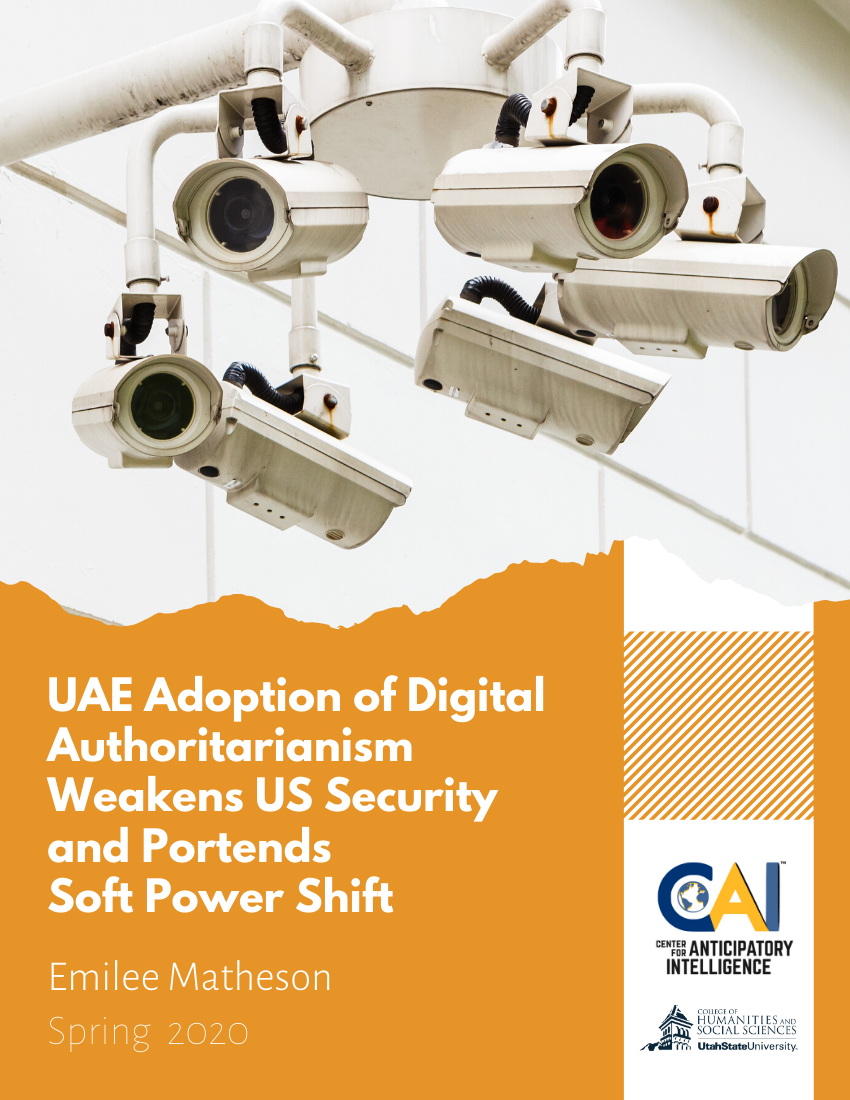UAE Adoption of Digital Authoritarianism Weakens US Security and Portends Soft Power Shift
Emilee Matheson, Undergraduate Senior (International Business & Political Science), Spring 2020
Efforts by the Chinese government to spread its model of digital authoritarianism, which is characterized by mass surveillance, the use of artificial intelligence, and networked smart city technology, have recently extended to an increasing number of nations around the globe. China's overtures toward spreading its model to the United Arab Emirates (UAE)—a key US ally and a rising cultural, political, and financial power within the Middle East region and throughout the world—present a significant threat to US military objectives and economic stability and portend a wider shift in soft power as the UAE moves philosophically closer to China and paves the way for other nations to do the same. In order to successfully protect US interests both in the Middle East and throughout the world, the US must make a concentrated effort to strengthen the US-UAE alliance by enhancing existing military, diplomatic, and economic partnerships and diversifying its oil supply. Additionally, the US must address the growing global use of borderline authoritarian technologies by increasing and demarcating its own use of artificial intelligence and smart city technology with clear ethical standards, setting a global example for efficient democratic use of artificial intelligence and digital information technology without sacrificing human rights.
Read Report


